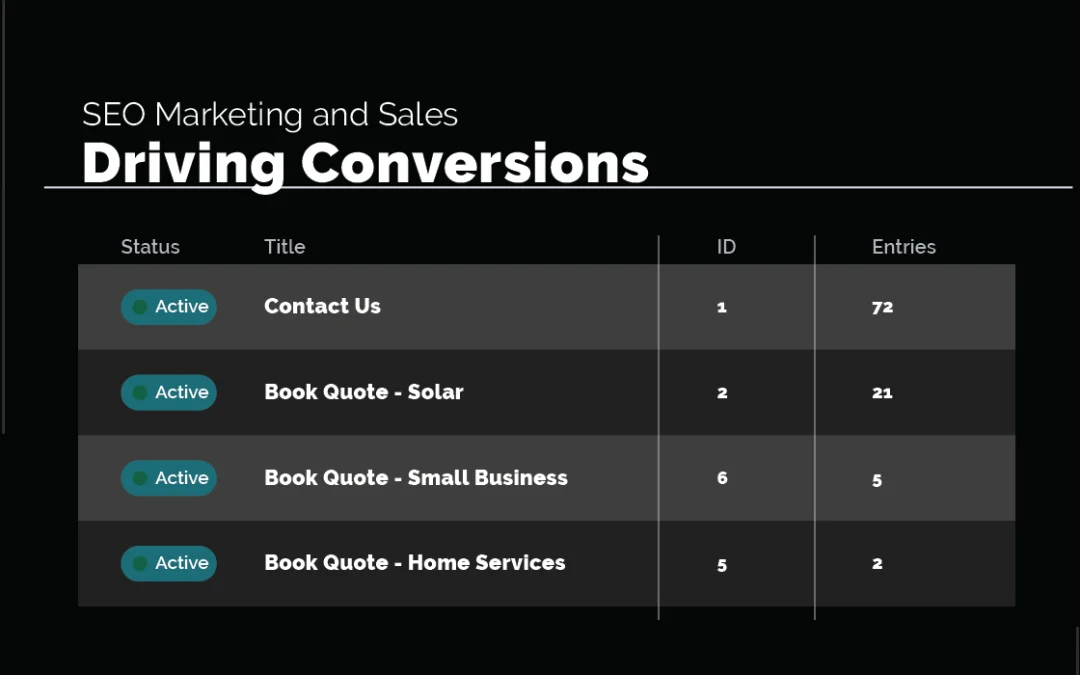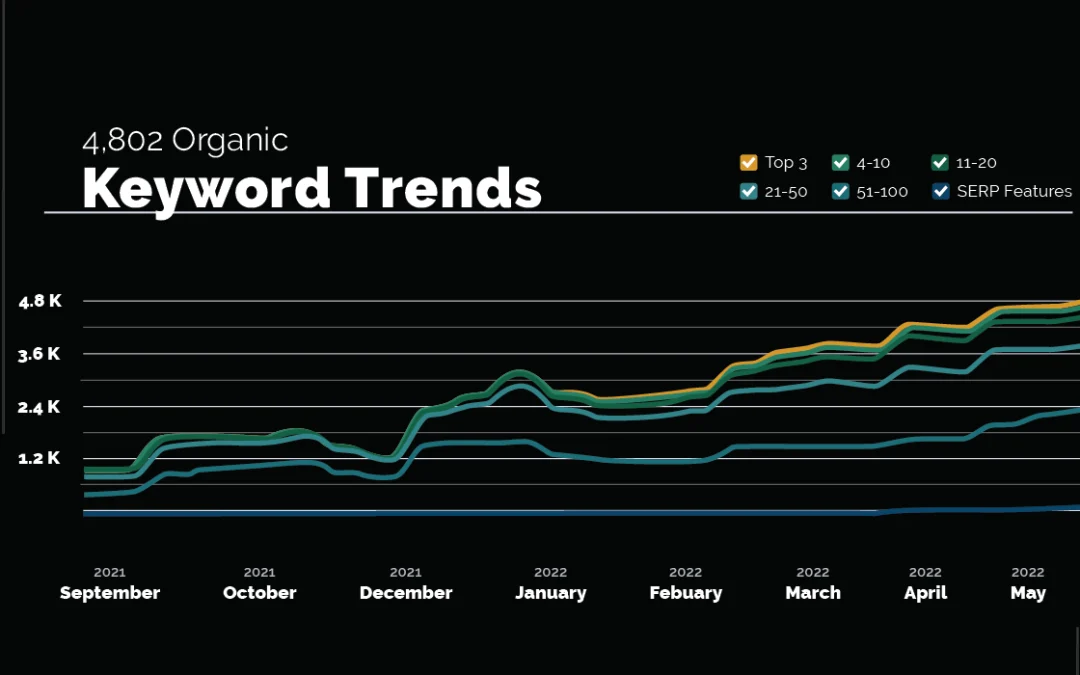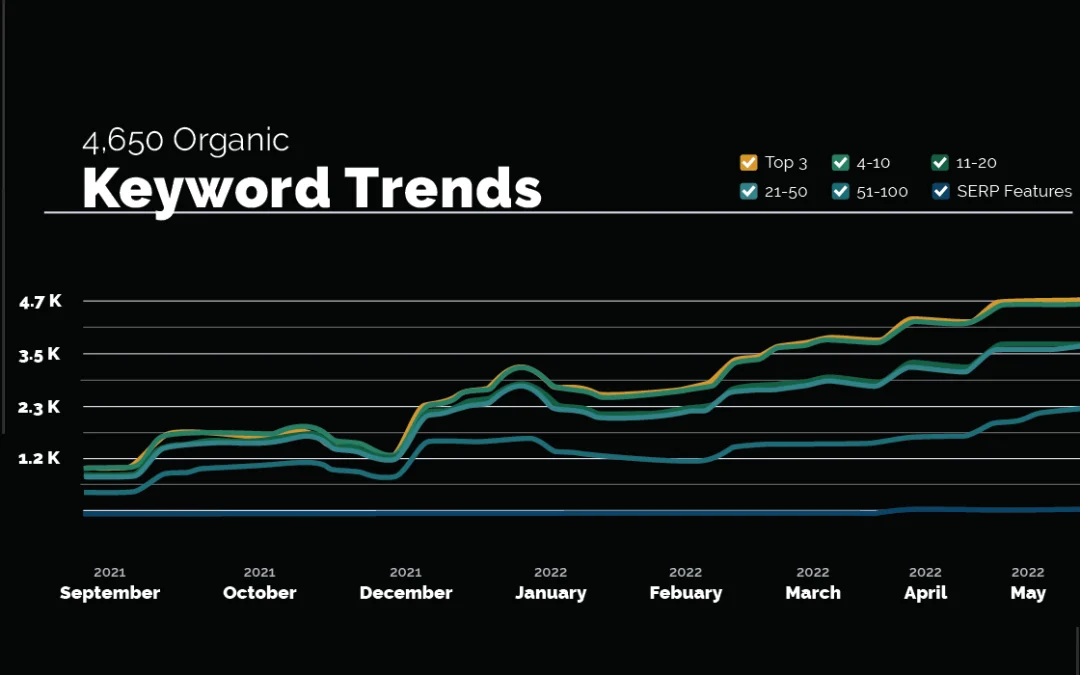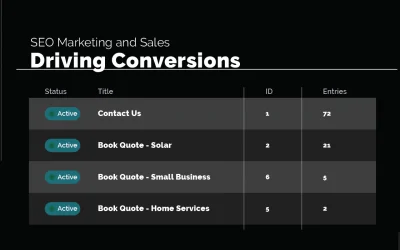Google AI Overviews significantly change the way search results are displayed. Agencies whose content is linked to with these AI-generated summaries are seeing improved visibility and engagement, whereas those who don’t are seeing their organic traffic negatively impacted. You want to be in the former category, not the latter.
At SocialWest 2023, I gave a talk on how AI Overviews—then termed Search Generative Experience—might impact organic traffic flows and SERP CTRs. I thought they’d be live by Q4 2023, but Google needed a bit more time to work out some of the kinks…
… emphasis on some ;). While Google is reducing how frequently AI Overviews appear, this is a temporary pause. Once Google gets these dialed in, expect AI Overviews to appear more often than they do now.
Continuous SEO success means adapting as search engines and user preferences change. That’s what our experience creating successful SEO campaigns at Monochrome has taught us, and the advent of AI Overviews makes it more apparent than ever.
So here are 5 tactics your agency can use to navigate the SEO landscape in the age of AI. Read on and learn how to position yourself for the best odds of success.
#1. Strategic Content Integration
Google now creates individualized results to provide more satisfying and complete answers to user queries. This means your content now needs to be more targeted and personal than ever.
Learn More: Why the Personal Narrative Is the Key to Effective Content in 2024
Your goal should be to take advantage of Google’s ability to match specific and detailed searches with equally specific content. The better you become at this, the more often your content will be used in the links Google shows immediately below its AI summaries—i.e. before any other search results for a given query.
- Focus on Long-Tail Keywords: Your content should address the kinds of specific queries that AI Overviews are most useful for answering. For example, instead of targeting broad terms like “digital marketing,” target a niche query like “how to optimize a digital marketing budget for small businesses” and make sure your content provides a complete, actionable response.
- Create Question-Based Content: Content should directly answer common questions in your industry. Use tools like “People Also Ask” for insights into what your audience is searching for.
- Segment Content for User Intent: Craft content that addresses different stages of the customer journey—cater distinctly to informational, navigational, and transactional intents.
The end goal here is to improve both traffic and overall content visibility, since being cited by the AI is now almost as valuable as being one of the top organic results.

#2. Enhancing Discoverability through Structured Data
Structured data helps Google’s algorithms understand and categorize the information in your content more effectively. This directly improves your chances of AI Overviews including links to your pages.
- Use Schema Markup for Articles: Article schema helps Google understand the parts of your content that best answer specific questions, which makes AI Overviews more likely to link to your pages for relevant queries.
- Implement FAQ Schema: FAQ schema on informational pages will boost your content’s visibility in quick answers generated by AI Overviews and help it rank more prominently.
- Product Schema for E-Commerce: Increasingly, eCommerce searches will now return AI Overviews in the search results. Using product schema to highlight features, prices, availability, and other specifics can help Google pick up this data for relevant queries and display your listings with responses created by AI Overviews.
#3. Predictive SEO Modeling
Agencies now need to not only predict what users will search for, but also how AI Overviews might interpret and prioritize content based on these queries. Here’s how you can refine your approach to stay ahead:
- Analyze Search Trends: Tools like Google Trends and Semrushare invaluable in spotting emerging trends that AI Overviews are likely to prioritize. Semrush’s domain overview report is useful as it has shown rich results in its reports since April 2023.
- Use Modeling Tools to Get a Sense of Which Queries are Triggering Overviews: Tools like Also Asked will help you identify which queries are triggering responses, as well as give you long-tail ideas that you can implement into your content strategy.
- Benchmark via Competitor Analysis: Monitoring how your competitors adapt to the introduction of AI Overviews helps you see what works and what doesn’t. Tools that analyze keyword shifts and content performance can show you where your competitors might be succeeding or failing so you can adapt your strategy to capitalize on gaps or reinforce areas where you are directly competing.
Learn More: Metrics to Track for SEO Success & How to Action the Data

#4. Develop Authority in Niche Segments
With AI Overviews, authoritative content now carries even more weight. That’s because Google prioritizes trustworthy sources for generating reliable summaries.
- By establishing authority in specific niches, your content is more likely to be featured in AI Overviews.
- Publish Expert Roundups and Interviews: Generate content that includes insights from industry experts, which can help establish authority and provide unique value.
- Perform Original Research: Conduct and publish original research or comprehensive industry reports to create authoritative content that stands out as a primary source for AI Overviews.
- Showcase Certifications and Acknowledgments: Highlight any certifications, awards, or recognitions to bolster credibility, making content more likely to be trusted and used.
- Build Backlinks Focused on Strategic Content – The recent Google algo leak (which I’ll address in a separate post) suggests that links are more important than SEO’s already knew they were (and what Google has been saying). Authority signals are an important part of how Google’s algorithm, and AI Overviews, determine which content to rank and cite.
#5. Accept Change: SEO is a Bumpy Ride
Finally, it’s critical to understand that the SEO landscape is continuing to change rapidly as AI Overviews get rolled out around the world. That’s because as user behavior changes in response to the new feature, Google will also update it to reflect trends in usage.
To come out ahead of this, you’ll need to make sure your strategy is versatile and updated regularly. This helps you maintain competitive relevance as AI Overviews evolve.
- Create Agile Frameworks for Content Strategy: Implement flexible content strategies that can quickly pivot based on SEO dashboard analytics, allowing for rapid response to changes in Google’s content preferences.
- Schedule Regular Algorithm Update Reviews: Set regular reviews of SEO strategies to coincide with updates from Google, ensuring that every approach stays aligned with the latest search engine behaviors.
- Invest in Training and Development: Keep your team updated with regular training on the latest SEO tools and techniques, emphasizing continuous learning and adaptation to maintain a competitive edge.
Set Yourself Up for Success with AI Overviews
Reoptimizing your content for AI Overviews might sound like a lot of work, but not nearly as much as scrambling to catch up if it catches your agency unprepared. Updating your approach to SEO now will save you a lot of hard work—and money—later.
For help revitalizing your SEO strategy to align with the future of search, reach out to our team at Monochrome Marketing. I’ll be happy to consult with you about the best ways to adjust your angle of attack for success in the new search landscape.
Frequently Asked Questions about Google’s AI Overviews
Can traditional SEO tactics still be effective in the era of AI Overviews?
Traditional SEO tactics like link-building and keyword optimization still hold value—but with AI Overviews, there’s a greater emphasis on directly answering user queries and ensuring high content quality and structure. You don’t need to abandon traditional tactics, but they need to be guided by these new priorities.
How will AI Overviews change the way SEO success is measured?
Some of the key metrics you use to audit your SEO efforts will still be useful—like changes in organic traffic and conversion rates. But a critical new KPI will be the frequency of your content appearing in AI Overviews. Tools like Google Analytics and SEMrush can provide insights into how well content performs under the new search dynamics and identify areas for further optimization.
Is everything I know about SEO irrelevant once AI Overviews go live worldwide?
No. AI Overviews are a new way for Google to do what they’ve always claimed is most important to them: prioritize and serve user intent. If your SEO strategy is already focused on delivering value to users (which it should be), then adapting is simply a matter of understanding the technical changes AI Overviews bring and how to account for them. The tips I’ve provided above are a great way to start.









